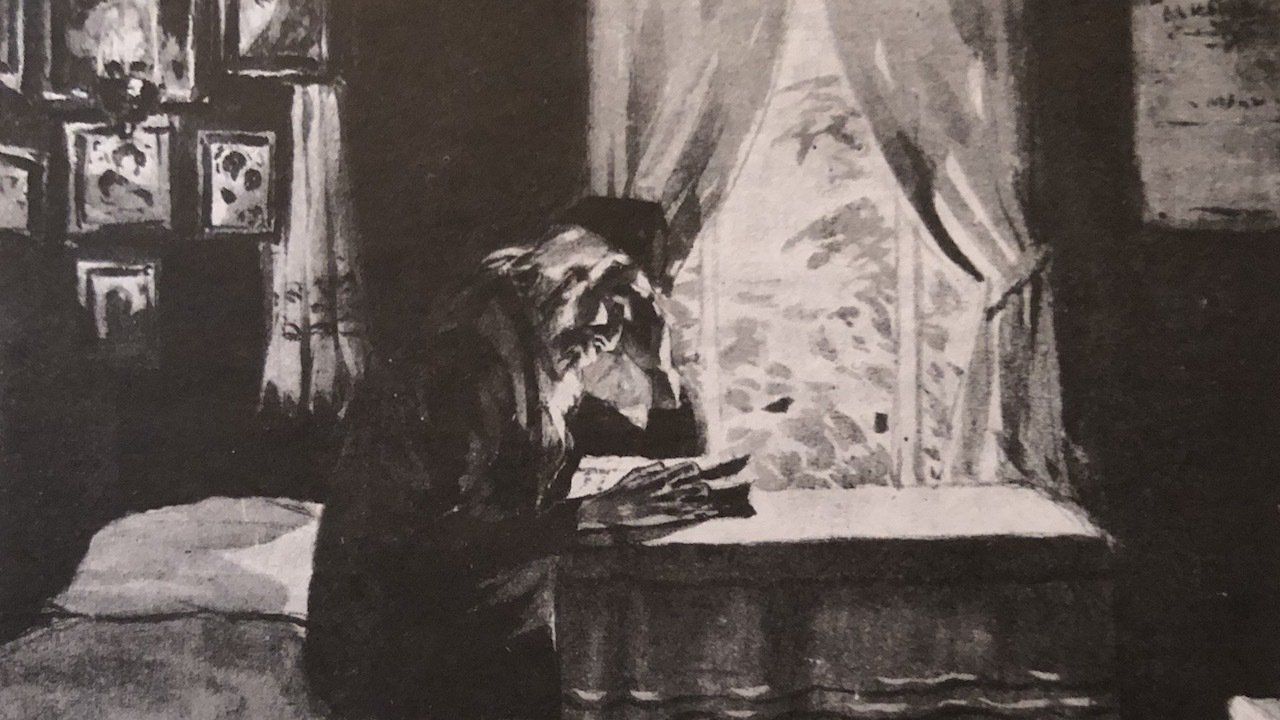Christian Reading as Means of Enlightenment
by Abbot Herman
Feast of St Stephen the Hymnographer of St Sabbas Monastery
Anno Domini 2020, October 29

When it comes down to the very basics, it seems that the essential problem of present-day Christianity is the weakness of Orthodox witness and lack of adequate Enlightenment, i.e., religious education and evangelization with the knowledge that God has become incarnate in humanity and now for 2,000 years has manifested divinity in men—active, vibrant, and dazzling with Uncreated Light. And this is straight up to our century and even our time. The documentation of Acts and the distribution of writings among all nations has since Apostolic times resulted in the phenomenon of Christian literature. In the course of time and under various influences this has developed into diversified forms of modern literature, which nowadays, alas, is hostile to its very initiative and its holy calling. The “Gutenberg” printing press is working against its original purpose—to bring Christ’s Enlightenment to the fallen world. Today, literature coming from “Christian” civilization is one of the main operations of the destruction of Christianity itself. The written and printed word of God, of course, remains the same. But it is also true that modern man has become different from the man of Apostolic times, and views reality no longer from the same spiritual perspective; not because the spiritual reality has changed or is no longer valid, but simply because he has lost the living thread of continuity. The purpose of spirituality has become earth-oriented, pragmatic, egotistic, and thus insensitive to the eternal reality that surrounds man: nature, the universe, and God, Whose image has become dim in the sight of modern man. Now this image has finally disappeared altogether, leaving a yawning gap in man’s being, one that wants to be filled with spiritual power, only to be taken over by the Prince of this world. Why such insensitivity in modern man? Modern, and once Christian, literature, like a mirror, reflects the impoverishment. Why such an apparent state of being robbed? The answer is simple and as clear today as it was in the fourth century, when St. John Chrysostom stated that without constant spiritual reading man loses his perspective concerning salvation and thus becomes lost to God.
Just as the physical body requires nourishment for sustaining life, in exactly the same way does the soul need spiritual food, as Christ said: “Man shall not live by bread alone” (Matt. 4:4). This spiritual bread is the word of God and other spiritual texts which keep the soul alive before the awesome mystery of the unseen (with physical eyes) world. The written word, as the recorded experience of the soul’s nearness to God, prepares a man for the other world. Physical, “this-worldly” existence has meaning only in relation to the world to come. Since it is a mystery that becomes coherent according to the measure of the soul’s growth in God, it is essential to have this experience systematically recorded and thus feed the soul. The Old Testament, the New Testament, and Patristic literature are based on man’s relationship with God: they give instruction to the soul on how to live with God.
Source: The Orthodox Word, Nos. 142-143 (1988), 179-181.
Contribute to Cultural Renewal by Sharing on Your Preferred Platform
In an isolating secularized culture where the Church's voice is muffled through her many divisions, Christians need all the help they can get to strengthen their faith in God and love toward their neighbor. Eighth Day Institute offers hope to all Christians through our adherence to the Nicene faith, our ecumenical dialogues of love and truth, and our many events and publications to strengthen faith, grow in wisdom, and foster Christian friendships of love. Will you join us in our efforts to renew soul & city? Donate today and join the community of Eighth Day Members who are working together to renew culture through faith & learning.









